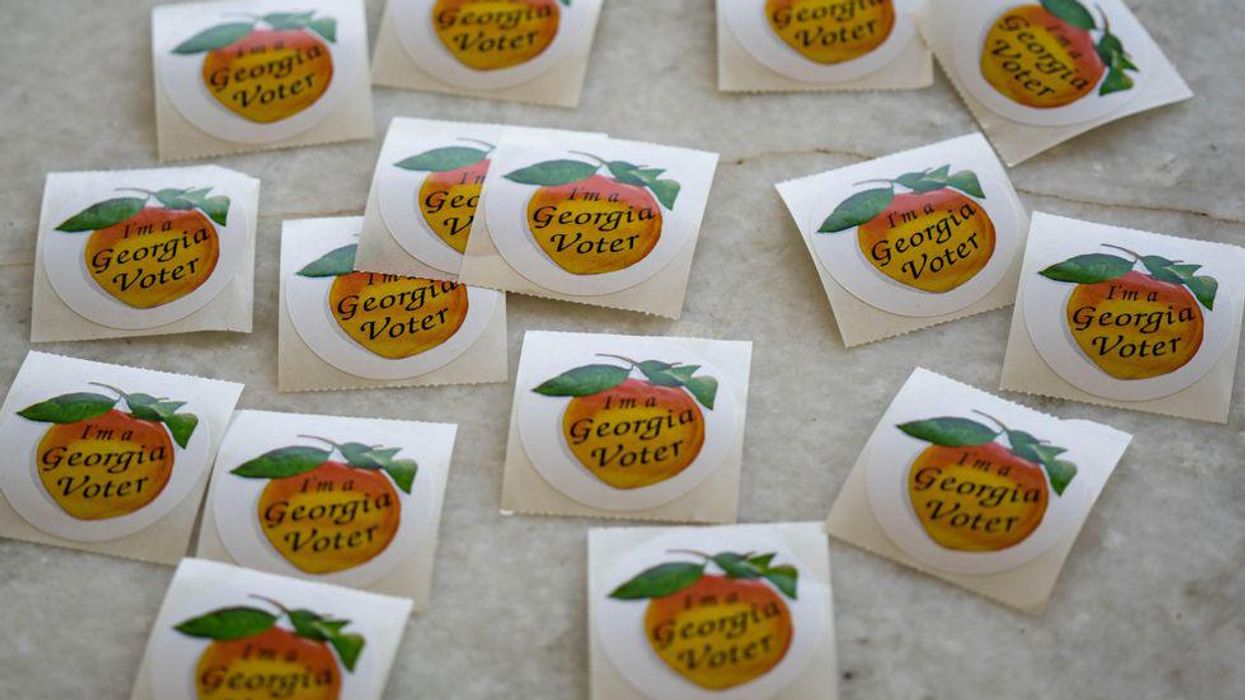Kickols is the communications manager for the Election Reformers Network.
Several prominent election law authorities and administration experts discussed potential election challenges in Georgia during an online event launching the Election Overtime Project, which supports journalists in Georgia and other swing states covering close and contested elections.
Key features of the project, run by the Election Reformers Network, include the curated, user-friendly election procedure briefs available to all Georgia reporters and voters.
The event was the fourth in a series of election media briefings. It featured Don Balfour, former Georgia state senator and Republican co-leader of the Georgia Democracy Resilience Network; Kathleen Hamill, senior advisor and member of the American Bar Association’s Georgia Democracy Task Force; ERN Executive Director Kevin Johnson; and ERN Vice President Heather Balas. Their collective expertise provided invaluable insights into Georgia’s challenges and solutions for the upcoming elections.
Hamill outlined why courts are appropriately equipped to handle election contests.
“The judicial process offers advantages over a county election board for conducting any type of thorough investigations,” Hamill said. “Courts have to examine evidence, subpoena relevant documents, compel testimony under oath by witnesses and apply rigorous legal standards in evaluating claims of irregularity or fraud. County election officials are not prepared to do the rigorous legal work that the courts are statutorily responsible for.”
Johnson agreed, emphasizing the need for “election culture” to catch up to electoral laws and processes.
“We now have a clearly established right of election contestants to challenge results in court, and you could almost say we wouldn’t quite be a democracy without it,” said Johnson. “And what we need is for public culture about elections to catch up. We haven’t had many elections where the courts have been prominent, but elections are a rule of law system, and we need to think about them that way.”
Balfour, who served in the Legislature for 22 years, highlighted the challenges the now politicized Georgia State Election Board presents for the 2024 election.
“The big question in Georgia is because of the State Election Board becoming very political,” Balfour said. “One member is appointed by the Republican Party, one by the Democrat Party, one by the governor, lieutenant governor, and one by the speaker, all of whom are Republicans. So, you’ve got four Republicans and one Democrat. Three of those Republicans are making rules that go beyond state law, according to the Republican attorney general of Georgia. So, this has become controversial and is in court. I think there are eight different court cases on this very issue.”
Hamill also clarified misunderstandings about “non-discretional authority” and the roles of county election boards, another challenge for Georgia voters this cycle.
“County election boards do not have discretion when it comes to certifying results,” Hamill said. “That is a mandatory duty. It is a fixed obligation established in settled law in Georgia and elsewhere across the country. Election superintendents have a fixed and mandatory obligation to certify election results. The election code speaks very clearly to that.”
The Election Overtime Project is a comprehensive set of resources that includes litigation monitoring, guides for reporting on election transparency, verification processes and judicial procedures. It also offers an extensive speakers bureau to connect journalists with expert commentary for local and national coverage. The program focuses on Arizona, Georgia, Michigan, New Mexico, North Carolina, Pennsylvania and Wisconsin.
“What I want for Georgia — and the rest of the nation — is clear and accurate election information by the press and on social media, so that voters have confidence in the accuracy of the electoral outcomes, no matter who wins. This is especially critical in races that are close or contested,” said Balas. “I also want state and county election board members, as well as election officials, to do their jobs without partisan influence and in ways that are transparent.”
“Who won an election is not a subjective question. It’s a matter of fact and a matter of law, and it’s important to help voters understand that,” Johnson said.
Materials under this program have been produced with the generous support of The Carter Center, the Gerald R. Ford Presidential Foundation and the Bridge Alliance, which publishes The Fulcrum.



















 From left to right: Gabriel Cardona-Fox, Bud Branch, Joe Concienne
From left to right: Gabriel Cardona-Fox, Bud Branch, Joe Concienne 